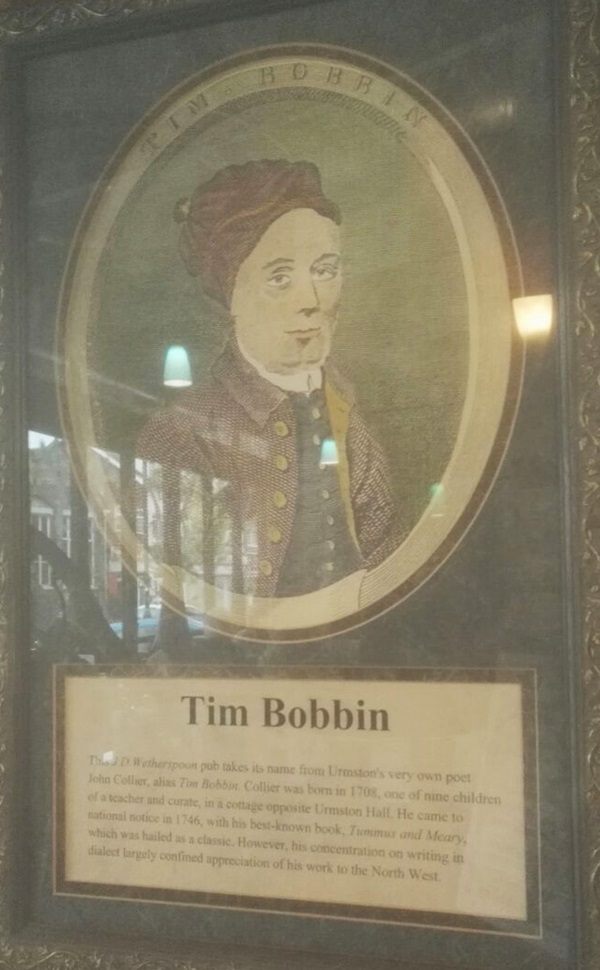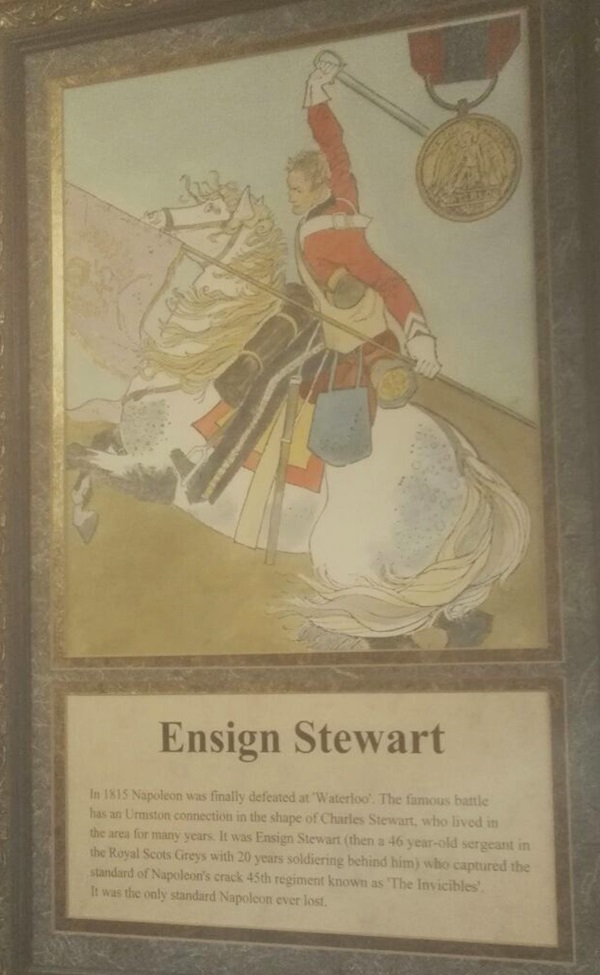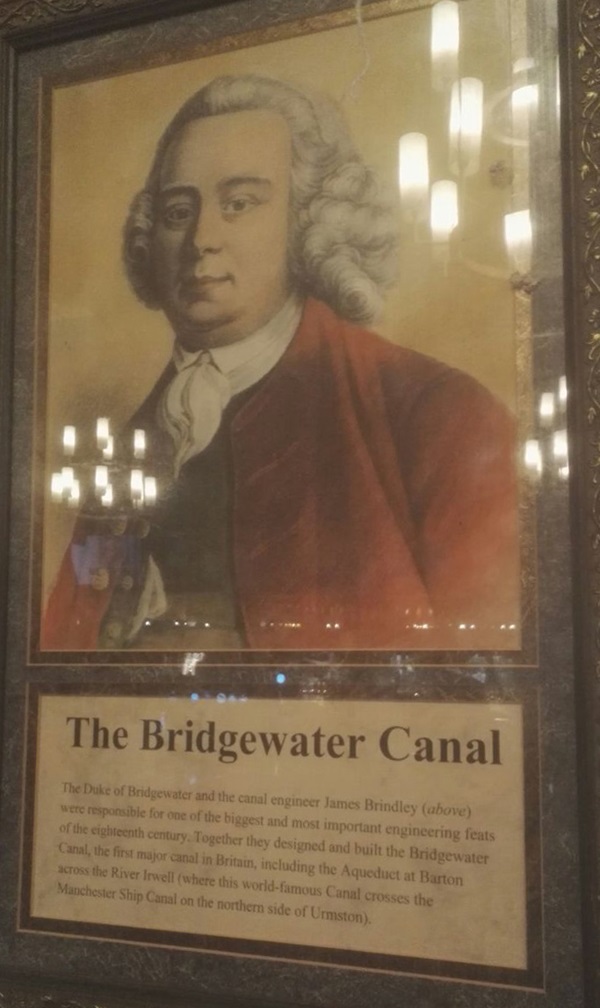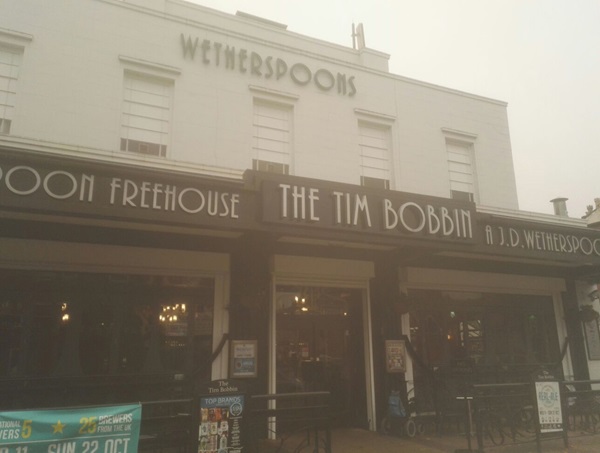This pub is named after Urmston’s much-acclaimed 18th-century dialect poet John Collier (alias Tim Bobbin). Born in 1708, the son of a local curate and schoolteacher, Collier began his working life as a weaver, later becoming a teacher and writer. In most of his books, Tim Bobbin was the main character, and Collier used Bobbin as a pseudonym throughout his career.
An illustration and text about Tim Bobbin.

The text reads: This J D Wetherspoon pub takes its name from Urmston’s very own poet John Collier, alias Tim Bobbin. Collier was born in 1708, one of nine children of a teacher and curate, in a cottage opposite Urmston Hall. He came to national notice in 1746, with his best known book, Tummus and Meary, which has hailed as a classic. However, his connection on writing in dialect largely confined appreciation of his work to the north west.
An illustration and text about Ensign Stewart.

The text reads: In 1815 Napoleon was finally defeated at Waterloo. The famous battle has an Urmston connection in the shape of Charles Stewart, who lived in the area for many years. It was Ensign Stewart (then a 46 year old sergeant in the Royal Scots Greys with 20 years soldiering behind him) who captured the standard of Napoleon’s crack 45th regiment known as ‘The Invincibles’. It was the only standard Napoleon ever lost.
An illustration and text about James Brindley and the Bridgwater Canal.

The text reads: The Duke of Bridgwater and the canal engineer James Brindley (above) were responsible for one of the biggest and most important engineering feats of the eighteenth century. Together they designed and built the Bridgwater Canal, the first major canal in Britain, including the Aqueduct at Barton across the River Irwell (where this world famous canal crosses the Manchester Ship Canal on the northern side of Urmston).
External photograph of the building – main entrance.

If you have information on the history of this pub, then we’d like you to share it with us. Please e-mail all information to: pubhistories@jdwetherspoon.co.uk